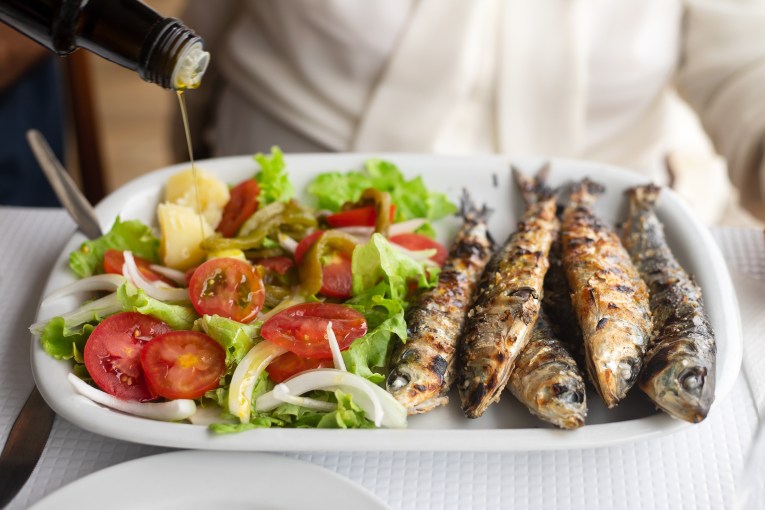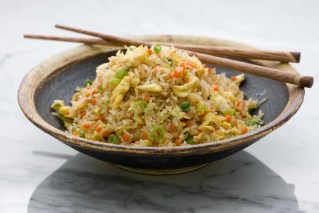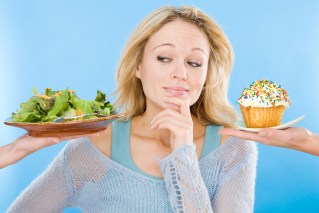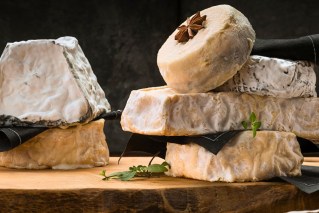What’s the healthiest alcoholic beverage? We ask a nutritionist


Do you really know what's in your drink? Photo: Getty
With new research suggesting even light drinking might be bad for us, short of becoming a teetotaller, what should we choose at the bar?
Quashing the merits of moderate alcohol consumption, a large-scale US study of light drinkers by Washington University School of Medicine, found one to two alcoholic drinks four or more times a week was associated with a 20 per cent increased risk of premature death.
It comes on the back of a weighty Lancet study unambiguously titled, No Level of Alcohol Consumption Improves Health.
Any potential health gains from alcoholic beverages (such as antioxidants in wine) are outweighed by the hazards. These include a greater risk of liver cirrhosis, colon, breast, mouth and throat cancer, stroke and cardiovascular problems.
New alcohol recommendations underway
Current national health guidelines on alcohol intake recommend adults in good health consume no more than two standard drinks a day. A standard drink represents 10 grams of pure alcohol – equivalent to a 30- millilitre nip of spirit (at 40 per cent alcohol volume), a can of mid-strength beer, or 100 millilitres of wine (at 13.5 per cent alcohol).
According to Dr Michael Livingston of the Centre for Alcohol Policy Research at La Trobe University, given the recent evidence, we can expect new recommendations soon.
Nutritionist and health writer, Michele Chevalley Hedge, said pregnant women, and those with liver problems or a genetic disposition to cancer should abstain from alcohol.
“It can increase your risk factors,” she said.
The worst booze for your health
“Whether it’s a light beer or a small glass of wine, if you’re making a decision based on health, it’s just about how much alcohol you’re consuming,” Dr Livingston said.

When it comes to staying healthy, there’s no one particular alcohol to avoid – but many factors combined. Photo: Getty
Spirits are the most alcohol-dense, however, the volume of your drink is a confounding factor.
For example, a can of pre-mixed spirit and most cocktails easily top that single 30-millilitre nip for alcohol.
Alcohol levels also vary widely from product to product, Dr Livingston said. “There are beers that have 1 per cent alcohol and there are beers that have 10 per cent.”
Read the label. “It’s mandated that the label includes the alcohol strength and the number of standard drinks,” he said.
Another baddie in the bottle is sugar, Ms Chevalley Hedge said. “The lowest in sugar of all would be spirits.” However, not if they’re mixed with sugary ingredients.
Most popular low alcohol drinks – like alcopops, ginger beer, cider, tonic water, mocktails, sangria, punch, and shirley temples – are super high in sugar, she said.
The best low-alcohol beverages
Non-alcoholic beer and wine
Increasingly sophisticated, non-alcoholic beer and wine is available online, at bottle shops, supermarkets and many licensed restaurants and bars.
According to alcofree.com.au, “non-alcoholic” and “de-alcoholised” drinks contain 0.5 per cent or less alcohol by volume. “Alcohol-free” beverages are permitted up to 0.05 per cent alcohol.
Low-alcohol wine and beer
The latest trend is to enjoy your favourite poison in a lower dose.
“A glass of red wine is the healthier alcohol choice,” Ms Chevalley Hedge said. “It has a high antioxidant content and is low in sugar.”
Spritzers
She said spritzers (wine with soda or mineral water) are popular with those trying to minimise their alcohol intake.
“Most do a spritzer with white wine, however, if you’re more of a red wine drinker, that’s possible too.”
Lemon, lime and bitters
Another good popular low-alcohol option, according to Ms Chevalley Hedge, but avoid those made with soft drink.
Kombuchu
An ancient Chinese traditional brew of fermented, sweetened tea, touted to be high in probiotics, kombuchu contains tiny amounts of alcohol and is gaining hipness.
Top ‘no’ alcohol choices
Coconut water
Coconut water is naturally sweet, but free of added sugars, Ms Chevalley Hedge said. Dress it up with mint leaves, fruit slices and ice cubes to look like the real deal.
Sparkling mineral water infusions
Unsweetened concoctions of mineral water infused with ingredients like chopped ginger, mint leaves, lime and other fruit, are popular in the United States but still emerging here, she said.
Water with natural fruit juice
“Fill up the wine glass with sparkling [or spring] water and a splash of cordial or fruit juice,” Ms Chevalley Hedge suggests. “A splash certainly isn’t going to make it high sugar, but makes it feel like you’re not in deprivation.”
Soda water
Popular with non-drinkers, soda water is often high in sodium, she warned. “People who go off alcohol and become mad drinkers of soda and mineral water don’t realise that. Not all soda waters are treated equally.” Read the label.
Appletiser and Grapetiser
A fizzy, carbonated apple or grape juice, Appletiser and Grapetiser contain no added sugars. They’re made from concentrated juice. Dilute the sweetness with low-sodium mineral water.








